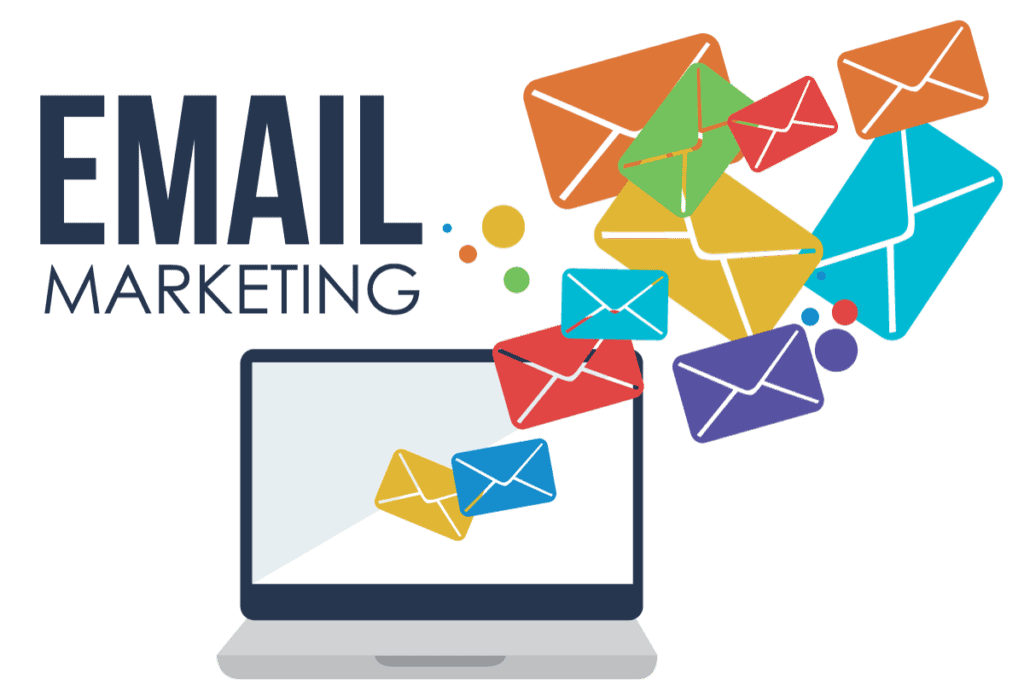7 Best Email Marketing Tools for SME companies

7 Best Email Marketing Tools: As a small business owner, you always search for new and affordable ways to grow your business. Email marketing is one of the best ways to reach your target audience and promote your products or services. Email marketing is one of the most effective and affordable ways to connect with your customers and drive sales. In this article, I will share the top 7 must-have email marketing software for small businesses.
Importance of Email Marketing for Small Businesses
Email marketing is an essential tool for small businesses. It enables businesses to build relationships with their customers, keep them informed about their products or services, and drive sales. With email marketing, you can send targeted messages to your customers based on their interests and behaviours. This allows you to create a more personalised experience for your customers, which can lead to increased engagement and sales.
Email marketing is also one of the most cost-effective ways to reach your customers. Unlike traditional advertising methods, email marketing allows you to reach a large audience without spending a lot of money. This makes it an ideal marketing tool for small businesses with limited marketing budgets.
Factors to Consider when Choosing Email Marketing Software

Choosing the right email marketing software can be a daunting task. There are many factors to consider, such as ease of use, features, pricing, and customer support. When choosing email marketing software for your small business, it is important to consider the following factors:
- Ease of use: The software should be easy to use, even if you have no experience with email marketing.
- Features: The software should have all the features you need to create effective email campaigns, such as templates, automation, and analytics.
- Pricing: The software should be affordable and offer flexible pricing plans that fit your budget.
- Customer support: The software should offer excellent customer support to help you with any issues or questions you may have.
7 Best Email Marketing Tools
Now that we have discussed the importance of email marketing and the factors to consider when choosing email marketing software let’s look at the top 7 must-have email marketing software for small businesses.
#1: Mailchimp
Mailchimp is one of the most popular email marketing software for small businesses. It is known for its ease of use and excellent customer support. Mailchimp offers a wide range of features, including templates, automation, and analytics. It also integrates with a variety of other tools, such as social media platforms and e-commerce platforms.
What I like:
What I don’t like:
#2: Constant Contact
Constant Contact is another popular email marketing software for small businesses. It is known for its user-friendly interface and excellent customer support. Constant Contact offers a range of features, including templates, automation, and analytics. It also offers a variety of integrations, such as social media platforms and e-commerce platforms.
What I like:
What I don’t like:
#3: Campaign Monitor
Campaign Monitor is a powerful email marketing software for small businesses. It is known for its advanced features, such as dynamic content and advanced segmentation. Campaign Monitor offers a range of templates, automation, and analytics. It also integrates with a variety of other tools, such as social media platforms and e-commerce platforms.
What I like:
What I don’t like:
#4: Brevo (ex. Sendinblue)
Brevo is an affordable email marketing software for small businesses. It offers a range of features, including templates, automation, and analytics. Brevo offers SMS marketing and live chat, making it a great all-in-one marketing tool for small businesses.
What I like:
What I don’t like:
#5: AWeber
AWeber is a popular email marketing software for small businesses. It offers a range of features, including templates, automation, and analytics. AWeber also offers a variety of integrations, such as social media platforms and e-commerce platforms. It also has an excellent reputation for customer support.
What I like:
What I don’t like:
#6: GetResponse
GetResponse is a powerful email marketing software for small businesses. It offers a range of features, including templates, automation, and analytics. GetResponse also offers landing pages and webinars, making it a great all-in-one marketing tool for small businesses. It also has an excellent reputation for customer support.
What I like:
What I don’t like:
#7: Drip
Drip is a powerful email marketing software for small businesses. It is known for its advanced features, such as automation and segmentation. Drip offers a range of templates and analytics. It also integrates with a variety of other tools, such as social media platforms and e-commerce platforms.
What I like:
What I don’t like:
Comparison of Email Marketing Software Features and Pricing

To help you choose the right email marketing tool for your small business, here is a comparison of the features and pricing of the top 7 must-have email marketing software for small businesses:
| Software | Features | Price |
|---|---|---|
| Mailchimp | Templates, automation, analytics, integrations | Free – $299/month |
| Constant Contact | Templates, automation, analytics, integrations | $20 – $335/month |
| Campaign Monitor | Templates, automation, analytics, integrations | $9 – $149/month |
| Brevo | Templates, automation, analytics, SMS marketing, live chat | Free – $49/month |
| AWeber | Templates, automation, analytics, integrations | $0 – $899/month |
| GetResponse | Templates, automation, analytics, landing pages, webinars | $15 – $99/month |
| Drip | Templates, automation, segmentation, analytics, integrations | $39 – custom/month |
Summary Email Marketing Tools:
- Mailchimp: Offers a user-friendly interface, robust automation features, and extensive integrations. Limited reporting on the free plan and price increases as the subscriber list grows can be drawbacks.
- Constant Contact: Known for excellent customer support, an intuitive interface, and a library of resources. However, it has limited automation capabilities and template selection, and pricing might be a concern for high-volume lists.
- Campaign Monitor: Provides customizable templates, advanced reporting, and strong data segmentation. Drawbacks include limited third-party integrations, a learning curve for beginners, and pricing concerns for large lists.
- Sendinblue: Offers an all-in-one marketing platform, affordable pricing, and advanced automation workflows. However, customization of templates may be limited, and some advanced features might have a learning curve.
- AWeber: Features a user-friendly interface, reliable deliverability, and an extensive template library. Drawbacks include limited marketing automation, higher costs for growing lists, and the need to upgrade for advanced features.
- GetResponse: Provides comprehensive marketing features, advanced automation, and a high-quality landing page creator. However, it has a learning curve for advanced features, slightly higher costs, and limited template customization.
- Drip: Excels in advanced e-commerce marketing, visual workflow builder, and deep data tracking. Drawbacks include a learning curve for beginners, pricing for growing lists, and limited integration options.
Conclusion
Email marketing tools are essential for small businesses. They enable businesses to build relationships with their customers, keep them informed about their products or services, and drive sales. When choosing email marketing software for your small business, it is important to consider factors such as ease of use, features, pricing, and customer support. The top 7 must-have email marketing software for small businesses are Mailchimp, Constant Contact, Campaign Monitor, Brevo, AWeber, GetResponse, and Drip. Choose the right one for your business and start growing your customer base today!
Darko’s recommendation:
For SME companies, an excellent choice would be Mailchimp. It offers a user-friendly platform that is easy to navigate, making it suitable for those new to email marketing. The robust automation features allow SMEs to create personalized and targeted campaigns without extensive technical knowledge. Additionally, the extensive integrations help businesses connect with other tools and platforms to enhance their marketing efforts.
Mailchimp’s scalability allows SMEs to start with the free plan and upgrade as their business and subscriber list grow. The platform’s features, ease of use, and integrations make it a reliable choice for SMEs seeking a versatile and effective email marketing solution. However, evaluating your specific business needs and considering trials or demos is always recommended to find the best fit for your needs.
Editorial Process:
My reviews are written with great care and come from real-world experience. Read my editorial process here.
Some of the links in this article may be affiliate links, which can provide compensation to me at no cost to you if you decide to purchase a paid plan. These are products I’ve personally used/tested and stand behind. This site is not intended to provide financial advice. You can read our affiliate disclosure in our privacy policy.
